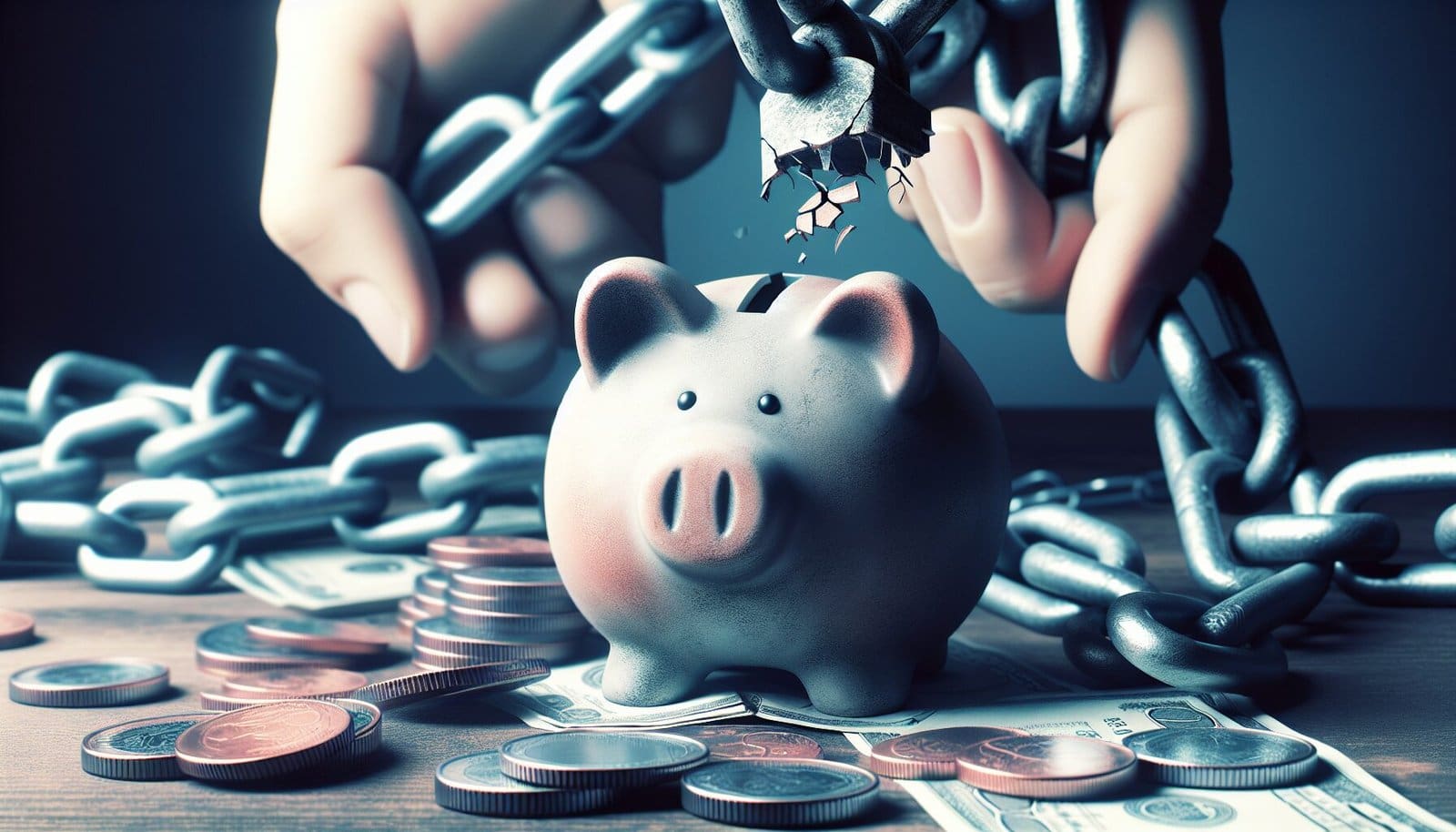In these uncertain times, managing debt can be a daunting task. As the world faces an economic crisis, it is vital to have a solid plan in place to navigate through the challenges ahead. This article offers invaluable tips on how to effectively manage debt during this crisis, providing you with practical strategies to stay financially secure and regain control over your finances. With these tips, you can face the economic uncertainty head-on and come out stronger on the other side.
Create a Budget
Track your income and expenses
Creating a budget is a crucial first step in managing your debt during an economic crisis. By tracking your income and expenses, you gain a clear understanding of your financial situation. Start by making a list of all your income sources, such as salary, freelance work, or government assistance. Then, track your expenses by categorizing them into fixed expenses (e.g., rent, utilities) and variable expenses (e.g., groceries, entertainment). By monitoring your spending habits, you can identify areas where cost-cutting is essential.
Identify areas for cost-cutting
Once you have a clear picture of your income and expenses, it's time to identify areas where you can cut costs. Start by examining your variable expenses. Look for non-essential items or services that you can temporarily do without. Consider reducing your spending on discretionary items such as dining out, subscriptions, or entertainment. Additionally, evaluate your fixed expenses and explore options to lower them. For example, you can negotiate with service providers to lower your monthly bills or explore more affordable alternatives.
Allocate funds for debt repayment
While cutting costs is important, it's equally essential to allocate funds for debt repayment. Set aside a portion of your income specifically for paying off your debts. Prioritize high-interest debts or those with strict repayment terms. By making regular debt payments, you can gradually reduce your overall debt burden and make progress towards financial stability. Creating a realistic budget will not only help you manage your debt during an economic crisis but also lay the groundwork for long-term financial success.
Prioritize Essential Expenses
Identify essential expenses
During an economic crisis, it becomes crucial to prioritize your essential expenses. These are the expenses necessary for your basic needs, such as housing, food, and healthcare. Start by assessing your fixed expenses and determining which ones are essential for your well-being. These may include rent or mortgage payments, utility bills, and healthcare costs. By identifying these essential expenses, you can ensure that your basic needs are met even in challenging financial times.
Negotiate repayment plans or deferments
If you're struggling to meet your financial obligations, don't hesitate to reach out to your creditors. Many lenders understand the challenges faced during an economic crisis and may be willing to offer repayment plans or deferments. These options allow you to temporarily reduce or suspend your payments until your financial situation stabilizes. Contact your creditors, explain your situation, and ask about any available assistance programs. Remember, effective communication is key to finding relief and managing your debt effectively.
Seek financial assistance or relief programs
In addition to negotiating with your creditors, it's important to explore financial assistance or relief programs that may be available during an economic crisis. Government agencies, nonprofit organizations, and local initiatives often offer support to those facing financial hardship. Research and inquire about programs that can help with essential expenses like rent, utilities, or healthcare costs. By accessing these support systems, you can alleviate some financial pressure and allocate more funds towards debt repayment.
Communicate with Creditors
Inform creditors about financial difficulties
When you find yourself in a difficult financial situation, it's crucial to communicate openly with your creditors. Whether it's job loss, a reduction in income, or unexpected expenses, informing your creditors allows them to understand your circumstances and potentially work out new repayment terms. Contact your creditors as soon as possible to explain your situation and provide any necessary documentation to support your claims. By being proactive and transparent, you can initiate a constructive dialogue with your creditors and find solutions that work for both parties.
Negotiate new repayment terms
Once you have informed your creditors about your financial difficulties, it's time to negotiate new repayment terms. Creditors may be willing to lower interest rates, extend repayment periods, or even waive certain fees to help you manage your debt. Be prepared to provide details about your income, expenses, and other obligations to demonstrate your willingness and ability to make regular payments. Remember, creditors want to recover their funds, and many are open to finding mutually beneficial solutions during challenging economic times.
Consider debt consolidation or settlement
If negotiating with individual creditors becomes overwhelming or ineffective, you may consider debt consolidation or settlement options. Debt consolidation involves combining multiple debts into a single loan or credit card with a lower interest rate or more favorable terms. This allows you to simplify your repayments and potentially save on interest charges. Debt settlement, on the other hand, involves negotiating with creditors to accept a lump-sum payment that is less than the total owed. While debt consolidation and settlement options have their advantages, it's important to carefully research and understand the implications before committing to any specific approach.

Explore Government Assistance
Research available government programs
During an economic crisis, governments often introduce programs to support individuals and businesses facing financial difficulties. Take the time to research and understand the available government assistance programs in your country or region. These programs may provide financial support, temporary relief, or access to resources that can help you manage your debt effectively. Common examples include unemployment benefits, rent or mortgage relief, and student loan assistance. Be proactive in exploring these options to potentially alleviate some financial pressure during challenging times.
Apply for unemployment benefits
If you have lost your job or experienced a significant reduction in income, applying for unemployment benefits is an important step towards managing your debt. Unemployment benefits provide temporary financial assistance to individuals who are out of work. Research the specific requirements and application process in your jurisdiction, and ensure you submit all necessary documentation. The funds received from unemployment benefits can help cover essential expenses and reduce the strain on your finances during an economic crisis.
Review options for mortgage or student loan relief
Mortgage and student loan payments often represent a significant portion of an individual's debt burden. During an economic crisis, it's essential to review the options available for mortgage or student loan relief. Some governments offer programs that allow individuals to temporarily suspend or reduce their mortgage payments. Similarly, student loan relief programs may offer extended deferments, reduced interest rates, or income-driven repayment plans. Contact your lenders or loan servicers to inquire about these relief options and assess how they may benefit your financial situation.
Seek Professional Advice
Consult with a financial advisor or counselor
If you find it challenging to navigate your debt management during an economic crisis, seeking professional advice can be immensely helpful. Consider consulting with a financial advisor or counselor who specializes in debt management. These professionals can assess your financial situation, provide personalized advice, and guide you towards the most effective debt management strategies. They can also help you develop a comprehensive plan to address your immediate needs while working towards long-term financial stability.
Consider debt management or bankruptcy options
In some cases, the guidance of a professional may lead you to consider debt management or bankruptcy options. Debt management plans involve working with a credit counseling agency to negotiate new repayment terms with your creditors. This can result in lower interest rates, waived fees, and a structured repayment plan that suits your financial capabilities. Bankruptcy, on the other hand, should be considered as a last resort. It is a legal process that allows individuals or businesses to eliminate or restructure their debts under court supervision. Consulting with a professional will help you understand the implications and determine if these options are suitable for your situation.
Develop a long-term debt management plan
Managing your debt during an economic crisis should also include a focus on long-term debt management. Overcoming financial challenges requires careful planning and commitment. Work with a financial advisor or debt counselor to develop a comprehensive debt management plan. This plan should outline your financial goals, repayment strategies, and steps to avoid accumulating new debt. By prioritizing debt repayment, keeping track of your progress, and staying disciplined, you can gradually eliminate your debts and build a solid foundation for your future financial well-being.
Avoid Taking on New Debt
Refrain from unnecessary borrowing
One of the most important rules to manage your debt during an economic crisis is to avoid unnecessary borrowing. It can be tempting to rely on credit cards or loans for immediate financial relief, but doing so may worsen your debt burden in the long run. Assess your financial situation and carefully consider the necessity of any new debt. Differentiate between wants and needs, and focus on making informed decisions that prioritize your financial stability.
Consider short-term loans cautiously
While taking on new debt should generally be avoided, there may be situations where a short-term loan becomes necessary. If you find yourself in this position, it's essential to proceed with caution and consider all the implications. Research lenders thoroughly, review terms and conditions, and ensure you fully understand the interest rates and repayment terms. Be mindful of your ability to repay the loan promptly and explore alternatives before committing to borrowing.
Focus on building an emergency fund
Instead of relying on new debt, a more proactive approach is to focus on building an emergency fund. An emergency fund acts as a safety net during challenging times and allows you to cover unexpected expenses without resorting to borrowing. Start by setting aside a small portion of your income regularly, even if it's only a few dollars per week. Over time, this fund will grow and provide you with financial security. Prioritizing the accumulation of emergency savings will not only help you manage your debt during an economic crisis but also protect you from future financial hardships.
Review and Manage Credit
Check credit reports regularly
It's crucial to monitor your credit reports regularly, especially during an economic crisis. Reviewing your credit reports allows you to identify any errors or inaccuracies that may affect your credit score. You are entitled to one free credit report per year from each of the major credit bureaus. Take advantage of this and check your reports for any discrepancies. If you find any errors, report them immediately to the respective credit bureaus and work towards resolving them to maintain a healthy credit profile.
Dispute any errors or inaccuracies
If you discover any errors or inaccuracies on your credit reports, it's important to take action promptly. File a dispute with the specific credit bureau(s) reporting the incorrect information. Provide any supporting documentation that proves the error and explain why it should be corrected. The credit bureau(s) will investigate the dispute and make the necessary corrections if they find the information to be inaccurate. Resolving any credit reporting inaccuracies is essential to ensure that your creditworthiness is accurately reflected, which can impact your ability to access credit or secure favorable interest rates in the future.
Manage credit utilization and payments
Credit utilization refers to the amount of credit you use compared to your available credit limits. It is a significant factor in determining your credit score. During an economic crisis, it's important to manage your credit utilization carefully. Aim to keep your credit card balances low and avoid maxing out your available credit. Additionally, make your credit card payments on time to maintain a positive payment history. Consistent, on-time payments and responsible credit utilization can help bolster your creditworthiness and increase your chances of securing favorable lending terms in the future.
Explore Debt Repayment Strategies
Consider snowball or avalanche method
When it comes to repaying your debts, there are different strategies you can consider. Two popular approaches are the snowball method and the avalanche method. The snowball method involves paying off your smallest debts first while making minimum payments on larger debts. As each smaller debt is paid off, you gain momentum and motivation to tackle the larger ones. The avalanche method, on the other hand, focuses on paying off debts with the highest interest rates first. By tackling high-interest debts, you save money on interest payments in the long run. Evaluate your financial situation and personal preferences to determine which method aligns better with your goals and motivations.
Explore debt consolidation options
Debt consolidation involves combining multiple debts into one loan or credit card, typically at a lower interest rate or with more manageable repayment terms. This strategy simplifies your debt management by consolidating multiple payments into a single one. It can also help reduce interest charges and provide more structured repayment plans. Research debt consolidation options, such as personal loans or balance transfers, and assess whether they would benefit your specific financial situation. Be sure to compare interest rates, fees, and repayment terms to make an informed decision.
Evaluate potential balance transfer offers
If you have high-interest credit card debt, a balance transfer may be a worthwhile option to explore. Balance transfers involve moving your credit card debt from one card to another with a lower or zero interest rate for an introductory period. This allows you to save on interest charges and potentially pay off your debt more quickly. However, be mindful of any balance transfer fees and the duration of the introductory period. Ensure that you have a solid plan in place to pay off the transferred balance before the introductory rate expires to maximize the savings.
Maintain a Positive Mindset
Stay motivated and focused
Managing debt during an economic crisis can be challenging, but maintaining a positive mindset is crucial. Stay focused on your financial goals and the progress you're making. Celebrate small victories along the way to keep yourself motivated. Remember that managing debt is a journey, and setbacks may occur, but with determination and a positive mindset, you can overcome them.
Celebrate small victories
Debt repayment is a significant accomplishment, so take the time to celebrate each milestone you achieve. Whether it's paying off a credit card or significantly reducing a loan balance, acknowledge your progress and reward yourself. Celebrating small victories provides a sense of accomplishment and can boost your motivation to continue working towards your financial goals.
Seek emotional support when needed
Managing debt during an economic crisis can take a toll on your emotional well-being. It's important to recognize when you need emotional support and seek it when necessary. Reach out to trusted friends, family members, or support groups who can provide guidance, encouragement, and understanding. Sometimes, simply venting about your frustrations or sharing your successes with others can provide the emotional support you need to stay resilient and focused on your debt management journey.
Invest in Financial Literacy
Educate yourself on personal finance
Investing in your financial literacy is a lifelong endeavor that can greatly impact your ability to manage debt effectively. Take the time to educate yourself on personal finance topics such as budgeting, saving, investing, and debt management. There are numerous online resources, educational websites, and books available that can provide valuable insights and strategies. By increasing your knowledge, you'll be better equipped to make informed financial decisions and navigate economic crises with confidence.
Attend workshops or webinars
Attending workshops or webinars on debt management and personal finance is a great way to enhance your financial literacy. Many organizations and financial institutions offer free or low-cost educational events that cover a wide range of topics. These events often provide practical tips, strategies, and expert insights to help you effectively manage your debt and improve your overall financial wellness. Maximize these opportunities to learn from industry professionals and interact with other individuals who are also on their debt management journey.
Read books or listen to podcasts on debt management
Books and podcasts are also valuable resources for expanding your knowledge on debt management. Look for titles that focus on personal finance, debt reduction strategies, and financial resilience during economic crises. Podcasts often provide real-life stories and interviews with experts, while books offer in-depth knowledge and step-by-step guidance. By immersing yourself in these resources, you'll gain valuable insights and inspiration to develop effective debt management strategies tailored to your specific needs and circumstances.
In conclusion, managing debt during an economic crisis requires careful planning, proactive measures, and a positive mindset. By creating a budget, prioritizing essential expenses, communicating with creditors, exploring government assistance, seeking professional advice, avoiding new debt, reviewing and managing credit, exploring debt repayment strategies, maintaining a positive mindset, and investing in financial literacy, you can navigate the challenges and pave the way towards financial stability. Remember, every step you take towards managing your debt is a step closer to achieving long-term financial well-being.










